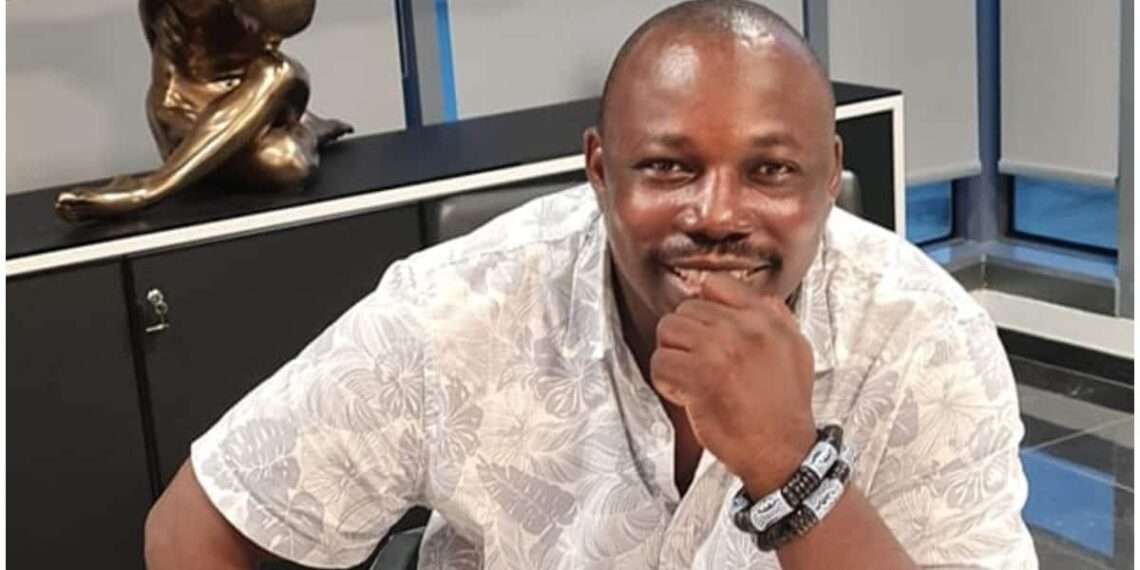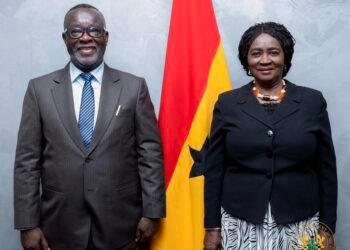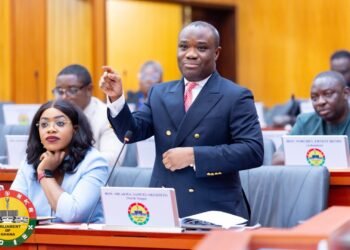Dela Coffie, an outspoken activist of the National Democratic Congress (NDC), has weighed in on the growing conversation among political commentators regarding the supposed influence of “mythical numerology” in the upcoming 2024 presidential elections.
His sharp critique comes as some individuals have attached symbolic meaning to the recent balloting positions of presidential candidates, linking these positions to good fortune or electoral success.
In his strongly worded statement, the National Democratic Congress activist called out this thinking as a baseless fantasy.
“Before anybody starts creating some ideal fantasy that in fact doesn’t exist, let’s understand that numerology and it’s so-called lucky numbers don’t win elections”.
Dela Coffie, NDC’s Activist
According to Coffie, the notion that being positioned first, second, third, or even last on the ballot paper automatically gives candidates an advantage is steeped in political arrogance and overconfidence.
He likened such attitudes to “political exceptionalism” and “spoilt brattishness,” likening it to a “pampered heir” believing that victory is theirs without the need to work for it.
In his critique, Coffie stressed that Ghanaian elections are not influenced by ballot positions but by symbols, pointing out that party logos have historically held more sway with voters than the order in which candidates appear.
“Since 1992, it has always been about symbols,” he explained, adding that the electorate is loyal to the emblem of their preferred party.
He argued that for most voters, the party insignia holds greater significance than any number on the ballot paper, asserting that this is why both the NDC and the New Patriotic Party (NPP) can consistently rely on their core constituencies.
Dela Coffie underscored that for many Ghanaians, voting is driven by party loyalty, making the party logo a decisive factor.
“There are many who would never vote for any other political party other than the symbol of their party,” he noted, further illustrating that voters would still back their party regardless of whether there was a “crude caricature of an animal” on the ticket.
His remarks suggest that while undecided or floating voters might weigh individual candidates more critically, the vast majority of Ghanaians cast their ballots along party lines.
Dela Coffie concluded his statement by dismissing the numerology debate entirely, calling for a reality check. He emphasized that political parties must work to earn the support of the electorate, a task that goes beyond reliance on symbolism or ballot position.
“Let’s shut down the numerology conversation and stop fantasising, and deal with reality – the reality here is that political parties have to earn their votes,” Dela Coffie urged.
Mahama’s Popularity versus Dr Bawumia’s Declining Visibility
Taking a direct swipe at the governing NPP, Dela Coffie criticised Vice President Dr Mahamudu Bawumia for failing to garner the necessary grassroots support, particularly in contrast to former President John Dramani Mahama.
According to Coffie, recent research commissioned by the Presidency has shown Mahama to have significantly higher visibility across the country than Dr Bawumia.
“As it stands, Dr. Bawumia hasn’t earned the votes,” Dela Coffie asserted, suggesting that the Vice President’s campaign lacks the connection needed to resonate with the electorate.
As the 2024 general election draws near, Dela Coffie’s remarks highlight a critical focus on substantive political work over superficial or mystical interpretations of ballot positioning.
His statement serves as a warning to candidates who might rely on symbolic gestures or perceived advantages from their position on the ballot, reminding them that the real contest lies in the hard-earned trust and votes of the people.
For him, the election will not be decided by luck or numerology, but by the strength of party allegiance, political symbols, and the efforts of the candidates to connect meaningfully with the Ghanaian electorate.
READ ALSO: KODA’s Wife Bid Farewell To Late Singer























